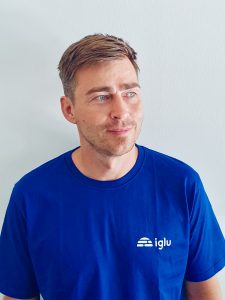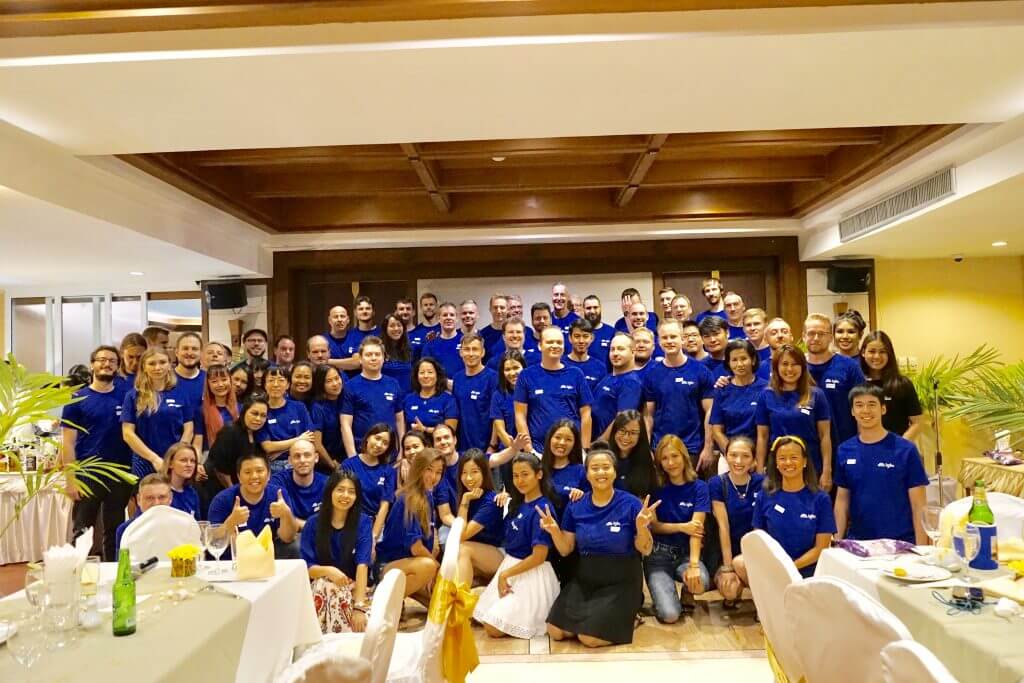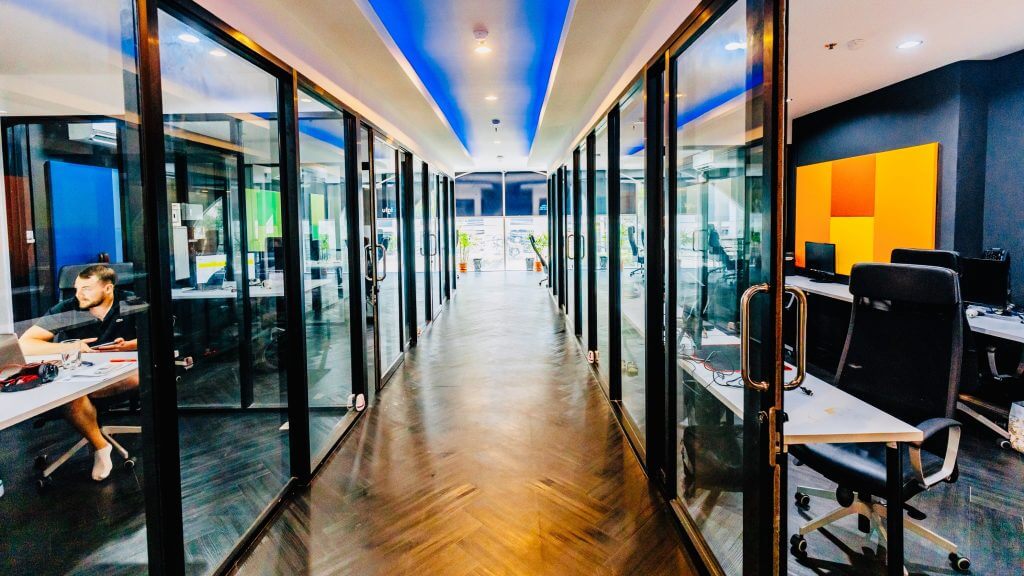nomadify interviewed Ozzi Jarvinen, the founder and CEO of Iglu.net, a company bootstrapped from Ozzi’s spare bedroom 9 years ago. Which has grown into an international network of companies.
Iglu is offering digital services and access to a worldwide pool of digital talents. The company currently employs over 200 people with more than 30 different nationalities and holds offices in the United Kingdom, Estonia, Thailand, Vietnam, and Hong Kong. For skilled digital nomads, Iglu offers the perfect opportunity to move and work abroad.
You are living in Thailand: can you tell us when you moved, why you decided to stay, and what made you decide to become an entrepreneur?
From a very young age, I kind of knew that I’ve wanted to experience different cultures and not only to travel but to live and work in different countries. I did short stints living in the UK, spending a winter in Spain, and studying international business at Bangkok University but eventually started my first company in my hometown Tampere, Finland. I later moved the office to Helsinki and that was my first experience on geo arbitrage. The idea was to move to Helsinki in the search of bigger clients and more money, but I ended up increasing my expenditure and still working for the same clients as previously in Tampere. The business wasn’t going well and eventually I closed down the company in 2006 and flipped a coin whether to move to Bangkok or Abu Dhabi. The coin decided Bangkok and I’m still on that trip.

Ozzi Jarvinen
Soon after moving to Bangkok my location optimization took me to Chiang Mai where I started Iglu three years later in 2010. Originally the idea was to remove communication issues out of outsourcing by having Finns working for Finnish companies and Swedish for Swedish companies but taking the advantage of the inspiring location that not only gives you more purchasing power but enables outdoor living and many activities all year round that I, for example, couldn’t enjoy in my native Finland (motorcycling for one).
What is Iglu all about, and how does it benefit people looking to work abroad?
We say “remote work redefined” on our website and what that means to me is still optimizing not only your work location but also your working environment and life. Many people working remotely to clients across the seas might feel a bit lonely and as we humans, even programmers are social animals so it’s important to have a supportive community around. This is especially true when you move to a new country and environment where you have to learn new ways of living and working. We constantly look at how we can improve our offices for collaboration as well as for community events and knowledge sharing. All of the offices are open 24/7 and equipped with finger scanners so once you have registered yourself to one office you are free to move between the offices. I still spend most of my time in Chiang Mai, but for example, right now I’m in Phuket and have been commuting to our office by the beach whenever I need a proper internet connection or meeting room for zoom calls.
We recently also invested in Cinode resource management software which matches our ongoing and incoming projects with not only our employee’s skills but also with their interests. We also built an AWS team through training sessions and knowledge sharing which is now ready to work on big scale projects for almost any industry. Besides building communities around our offices we still work locations flexibly and many of our employees work remotely from home. Moving between our locations is made easy. We also just opened a business in Vietnam which is ready to operate once the COVID restrictions are lifted. We don’t want to lock our employees to certain locations, but allow them to work from anywhere in the world and support them as much as we can wherever they are.
One of the key differences in comparison to a more traditional software agency model since the beginning has been our performance-based pay salary model or PRP (also translates to profit-based pay). Most of our employees choose this model where we pay a big part of the money the projects bring in as salaries. This also allows more freedom for our employees to decide on the projects they want to work in. Besides our own sales team we encourage everyone to bring in their own leads and pay bonuses for any new projects we get.

Iglu team in Pattaya
What does Iglu offer as extra services?
Each country has its specific characteristics and we do our best to help our employees with their relocation whether it’s related to where to open a bank account or find an apartment to rent. Those who decide to live in one of the locations where we have a physical presence we also make sure that the employees get all the legally required visas, work permits, and social insurance provided by Iglu.
Running a company can be hard. What do you find most difficult about it and what do you find the most fun and fulfilling?
My great grandparents, grandparents, and parents have all been entrepreneurs so I think I never really had a choice. Obviously every country has its differences and complications of running a company and for sure when I started in Thailand the first years were really stressful and I did put crazy hours into the business, there were days when I easily worked 20 hrs with the power of caffeine. I think my physical and mental health were stretched, but I guess nobody becomes an entrepreneur because it’s easy? I think it is those challenges that we go through that really gives the kicks for me. I get the validations that we are doing something right every time we get a job applicant sending their CV wanting to work in Iglu. If you have seen the movie called Groove then you would know, I do this for the same reasons as I used to organize rave parties for. It’s the nod.
What advice would you give to people who are trying to move and work abroad for the first time?
Just do it. The hardest part is to buy that flight ticket and after that things somehow always get sorted. You can always go back and if you do you go back, you will go as a better person. You will be able to see things from a different perspective and perhaps appreciate some things at home that you took for granted before, but also you can question things that could be improved or done differently.

Iglu office Bangkok
What are your favourite places to travel to, and why?
Funnily enough, after a lot of traveling, I’m pretty happy to stay home or if I travel I prefer to do it with my motorcycle in the endless mountain roads in Northern Thailand. Most of my international travels these days are for work but we had a short holiday with my wife in Slovenia last year and I loved the mountains there, just wish I would have had a motorbike with me.
How do you keep your work-life balance in check?
We built a small getaway place up in the mountains. This tiny off-grid cottage is where I feel most relaxed and it feels great to go there for a few days to recharge batteries and come up with new ideas. Besides the cottage, I like to go to the sauna which we built in my back garden in Chiang Mai (see there is still some Finn in me). I also try to look after my health by exercising regularly right now. I’m doing a 30-day burpee challenge (currently 20/30 days done), occasionally yoga and pilates as well, but if I would have to highlight one thing, it would always be sauna!
 Learn more about Iglu and how they can help on their website.
Learn more about Iglu and how they can help on their website.



